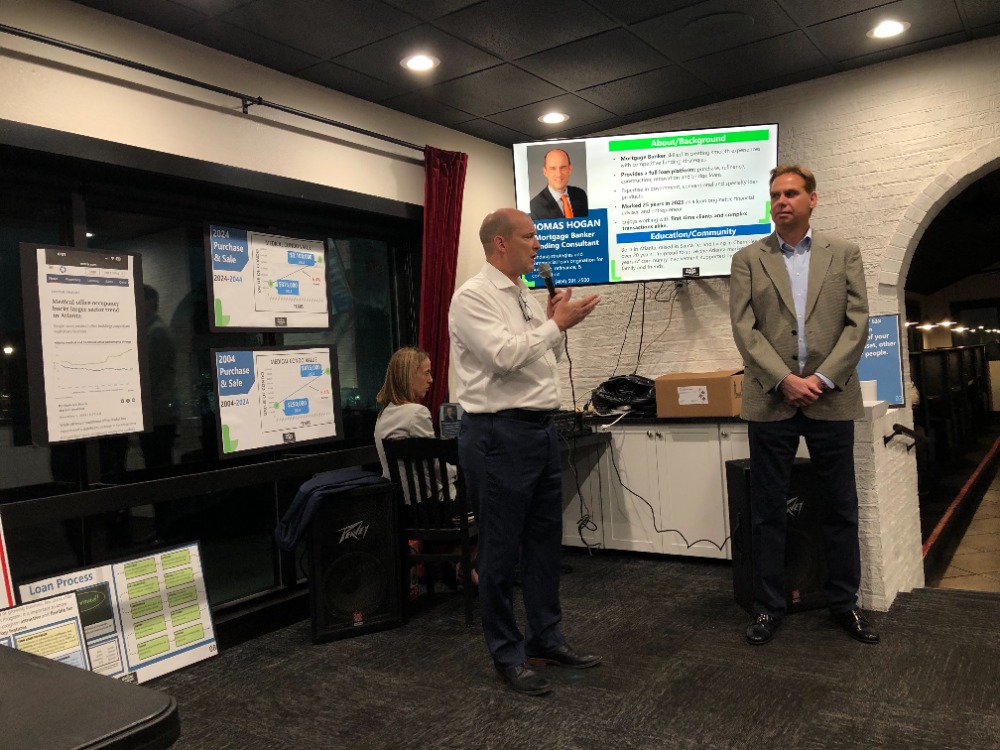
Gathering of Medical Office Experts
Atlanta, a city known for its growing healthcare industry, custom medical condos are becoming an attractive option for healthcare providers.”

Owning practice space provides a powerful solution to these challenges. Here are the key benefits of property ownership for healthcare professionals:
When doctors own their spaces, they invest in themselves rather than paying rent to a landlord. Mortgage payments build equity, turning what was once a recurring expense into a valuable asset.
Ownership allows doctors to customize their spaces to suit the unique needs of their practices. From optimizing workflow to creating a patient-friendly atmosphere, having control over the environment can enhance both efficiency and care quality.
A well-designed, owned space can improve patient satisfaction. Ownership allows doctors to create welcoming, comfortable environments that reflect their brand and values.
Ownership provides flexibility for growth. Doctors can expand their practice, sublease unused space to other professionals, or explore new services without landlord restrictions.
Despite the advantages, some doctors hesitate to pursue ownership due to perceived barriers such as cost or complexity. Here’s how to overcome these challenges:
Many doctors assume that purchasing a property is out of reach financially. However, specialized financing options, including Small Business Administration (SBA) loans, make ownership accessible.
Owning a property may seem time-intensive, but working with experienced property managers and real estate professionals can alleviate much of the burden.
Real estate ownership carries inherent risks, but these can be mitigated with due diligence and professional advice.
Numerous success stories illustrate the benefits of property ownership for healthcare professionals. For example:
Custom Medical Condos (CMC) specializes in helping doctors take control of their practice environments through property ownership. Our turnkey solutions include everything from financing guidance to tailored property designs.
With decades of experience in medical real estate, we understand the unique needs of healthcare professionals and provide the tools to achieve independence, stability, and growth.
As real estate firms increasingly dominate the healthcare property market, it’s more important than ever for doctors to consider ownership. Leasing may offer convenience, but it often comes at the cost of autonomy, financial security, and control over patient care.
Owning your practice space is a strategic investment in your future—one that ensures stability, builds equity, and enhances the quality of care you provide.
Join Us for Our Next Event
Ready to explore how property ownership can transform your practice? Join us at our next event, where industry experts will share insights and actionable advice tailored to healthcare professionals.
Visit us at custommedicalcondo.com or call us today to learn more about our custom solutions and take the first step toward ownership. Your practice deserves a space that reflects your vision and values—let us help you make it a reality.

Atlanta, a city known for its growing healthcare industry, custom medical condos are becoming an attractive option for healthcare providers.”

Atlanta, a city known for its growing healthcare industry, custom medical condos are becoming an attractive option for healthcare providers.”

“Discover a comprehensive guide tailored for doctors looking to invest in medical condos in Atlanta. From financing options to the benefits of ownership, learn how to make a smart investment for your practice.”

Understanding the total cost of buying a medical office space goes beyond just the purchase price. From down payments and loan interest to hidden fees like maintenance and legal costs, knowing all the factors that influence the overall expense is crucial for making an informed decision. In this guide, we break down every cost you need to consider and provide tips for navigating potential barriers so you can confidently invest in the right space for your practice.

One of the most significant decisions is whether to lease or buy your own medical office space. With rising demand for healthcare services, this choice can deeply affect your practice’s stability, growth potential, and financial trajectory.